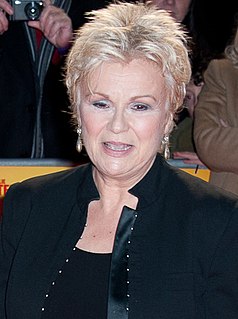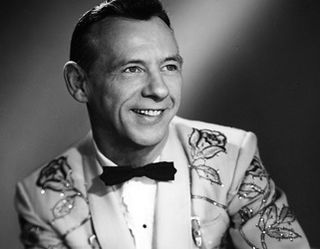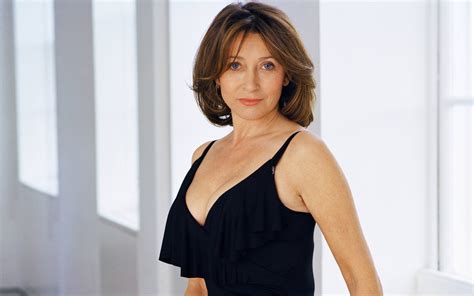A Quote by Julie Walters
I felt my mother about the place. I don't think she haunts me, but I wouldn't put it past her.
Related Quotes
My mother lived her life through movies and books - she read everything there was to read. And she read to me every night. I never went to sleep without her reading to me. And she fantasized about the book and she would talk about it, the place, and you would think that after she read the book and after she told you stories about it, that she had actually been there. I learned about story from her, and I learned the value of a great story, and the value of great characters.
...because in a way it happened to someone else. I don't really speak that person's language anymore, and when I think about her, she embarrasses me sometimes, but I don't want to forget her, I don't want to pretend she never existed. So before I start forgetting, I have to get down exactly who she was, and exactly how she felt about everything. She was me a lot longer than I've been me so far.
She writes that one of the moments that she felt most useful was when her mother had a headache, and she would stroke her head and rub her forehead. And I think Eleanor Roosevelt's entire life was dedicated to two things: (one) making it better for all people, people in trouble and in need, like her family.
I think being raised by a single mother put me on the outside, and I would watch my mother's married friends and think, 'Why does she put him down in public?' or, 'Why is he so rude to her?' It seemed to me that there were very few marriages where the couple were genuinely in a supportive, loving partnership.
But what I kept wondering about is this: that first second when she felt her skirt burning, what did she think? Before she knew it was candles, did she think she'd done it herself? With the amazing turns of her hips, and the warmth of the music inside her, did she believe, for even one glorious second, that her passion had arrived?
Her mother died at the age of 29, essentially turning her face to the wall and deciding to die. And so we can only imagine the agony she felt. And Eleanor Roosevelt really wanted to make her mother happier, and - and to make her live, you know, make her want to live. And there's something about, you know, when your mother dies, this sense of abandonment. I think Eleanor Roosevelt had a lifelong fear of abandonment and sense of abandonment after her parents' death.

































